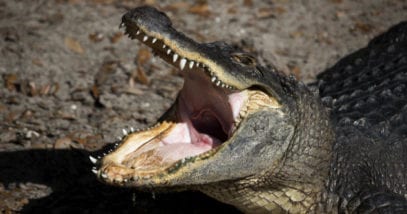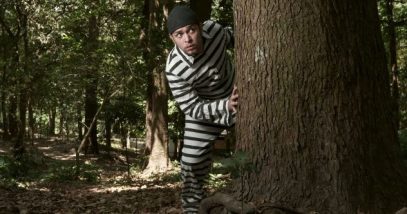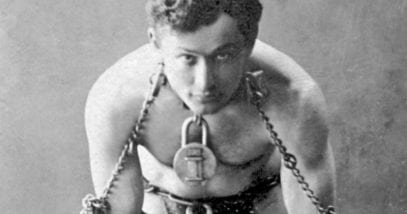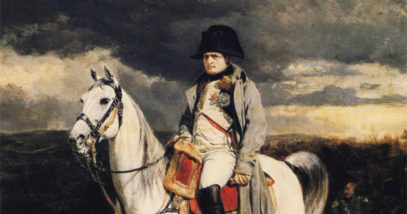 Technology
Technology  Technology
Technology  Humans
Humans 10 Everyday Human Behaviors That Are Actually Survival Instincts
 Animals
Animals 10 Animals That Humiliated and Harmed Historical Leaders
 History
History 10 Most Influential Protests in Modern History
 Creepy
Creepy 10 More Representations of Death from Myth, Legend, and Folktale
 Technology
Technology 10 Scientific Breakthroughs of 2025 That’ll Change Everything
 Our World
Our World 10 Ways Icelandic Culture Makes Other Countries Look Boring
 Misconceptions
Misconceptions 10 Common Misconceptions About the Victorian Era
 Mysteries
Mysteries 10 Strange Unexplained Mysteries of 2025
 Miscellaneous
Miscellaneous 10 of History’s Most Bell-Ringing Finishing Moves
 Technology
Technology Top 10 Everyday Tech Buzzwords That Hide a Darker Past
 Humans
Humans 10 Everyday Human Behaviors That Are Actually Survival Instincts
 Animals
Animals 10 Animals That Humiliated and Harmed Historical Leaders
Who's Behind Listverse?

Jamie Frater
Head Editor
Jamie founded Listverse due to an insatiable desire to share fascinating, obscure, and bizarre facts. He has been a guest speaker on numerous national radio and television stations and is a five time published author.
More About Us History
History 10 Most Influential Protests in Modern History
 Creepy
Creepy 10 More Representations of Death from Myth, Legend, and Folktale
 Technology
Technology 10 Scientific Breakthroughs of 2025 That’ll Change Everything
 Our World
Our World 10 Ways Icelandic Culture Makes Other Countries Look Boring
 Misconceptions
Misconceptions 10 Common Misconceptions About the Victorian Era
 Mysteries
Mysteries 10 Strange Unexplained Mysteries of 2025
 Miscellaneous
Miscellaneous 10 of History’s Most Bell-Ringing Finishing Moves
General Knowledge
Random List
 History
History 10 Most Influential Protests in Modern History
 Misconceptions
Misconceptions 10 Common Misconceptions About the Victorian Era
 Miscellaneous
Miscellaneous 10 of History’s Most Bell-Ringing Finishing Moves
 History
History 10 Great Escapes That Ended Right Back in Captivity
 History
History 10 Odd Things Colonial Americans Kept at Home
 History
History 10 Bizarre Friendly Fire Incidents in Military History
 History
History 10 Legends Whose Last Moments Undid Their Glory
 Facts
Facts 10 U.S. Government Contingency Plans for the Unthinkable
 History
History 10 Weird Distractions from the Great Depression
 History
History 10 Not-so-Spooky Events That Also Happened on October 31
 History
History 10 Events That Unexpectedly Changed American Life
Editor’s Picks
 Movies and TV
Movies and TV 10 Psychiatric Diagnoses Of Horror Villains And Their Victims
 Movies and TV
Movies and TV 10 Greatest Movie MacGuffins Of All Time
 Movies and TV
Movies and TV 10 Iconic Movie And TV Restaurants That Are Actually Real
 Movies and TV
Movies and TV